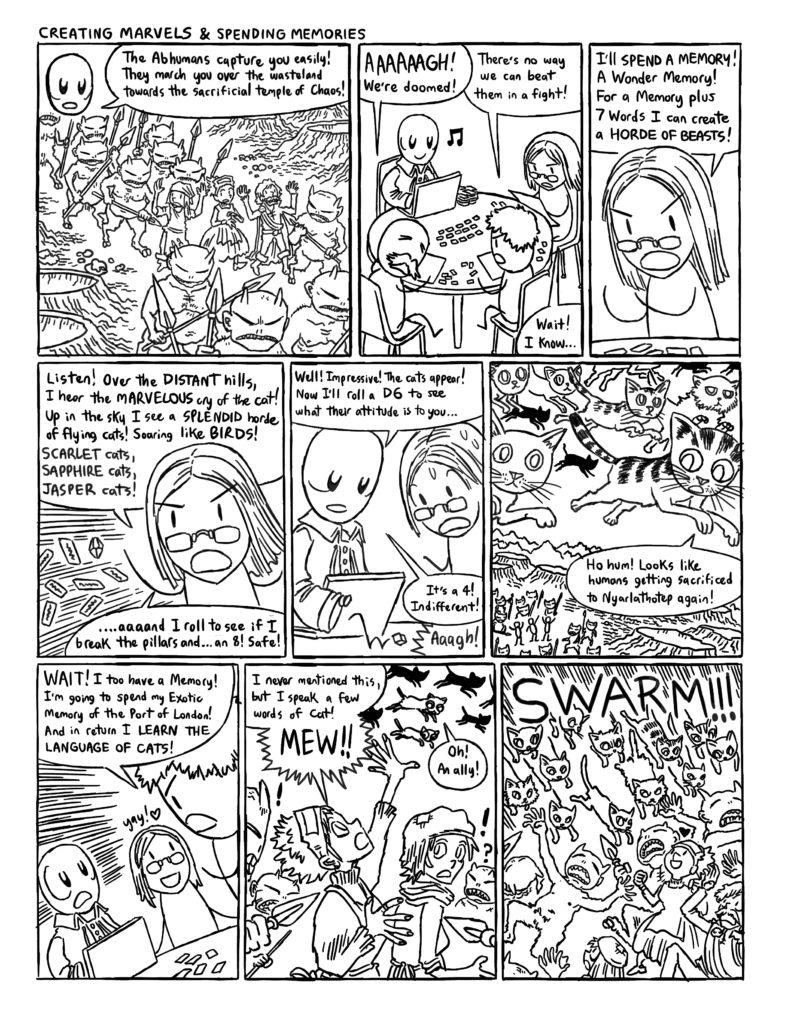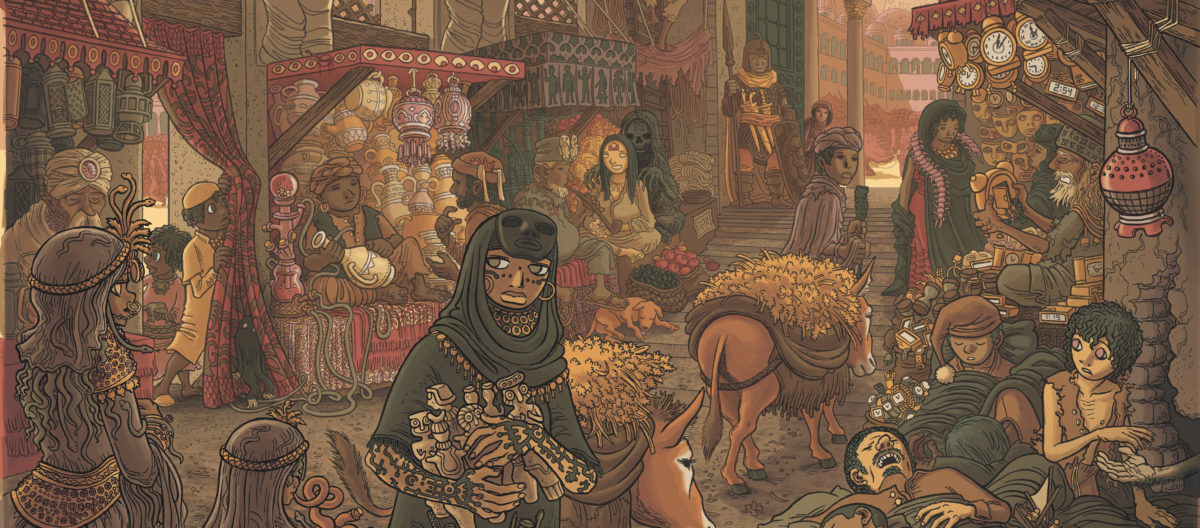“‘But does all this exist only after I’ve wished it? Or was it all there before?’
“‘Both,’ said Grograman.
“‘How can that be?’ Bastian cried almost impatiently. ‘You’ve been here in Goab, the Desert of Colors, since heaven knows when. The room in your palace was waiting for me since the beginning of time. So, too, was the sword Sikanda. You told me so yourself.’
“‘That is true, master.’
“‘But I– I’ve only been in Fantastica since last night! So it can’t be true that all these things have existed only since I came here.’
“‘Master,’ the lion replied calmly. ‘Didn’t you know that Fantastica is the land of stories? A story can be new and yet tell about olden times. The past comes into existence with the story.’
“‘Then Perilin, too, must have always been there,’ said the perplexed Bastian.
“‘Beginning at the moment when you gave it its name,’ Grograman replied, ‘it has existed forever.'”
— Michael Ende, The Neverending Story
The greatest power of dreamer is not their ability to do the impossible — it is their ability to create the impossible. All dreamers share the ability to mold Dreamland by summoning things into existence, reshaping the world by their unconscious will. To do so, however, requires giving part of oneself to Dreamland. To create marvels, dreamers must spend their Memories.
In game terms, a dreamer’s connection to the waking world is represented by their Memories, of which dreamers usually have no more than 3 at a time. By ‘spending’ Memories (in amounts of one half-Memory at a time), plus Words for the most powerful effects, dreamers can perform miracles like summoning allies, learning to talk to beasts, and creating whole landscapes from nowhere.
Creating marvels is not always something that happens consciously, nor are marvels bound by chronological laws of cause and effect. The creation of a Marvel echoes retroactively backward in time, so that there always was a friendly dragon waiting around the corner, or there always was a beautiful sunset city of gambrel roofs and lovely gardens, or a dreamer always had a pact with a certain type of talking beast.
EXAMPLE: Randolph Carter is exploring the ancient ruins of Sarkomand when he is grabbed by a horde of night-gaunts. Randolph Carter’s player has an Exotic Memory (of his time living in New York City), so he spends a half-Memory to know the language of night-gaunts. Carter forgets some of New York, but remembers that he always spoke a bit of night-gaunt, and is able to communicate with them.

Different dreamers can create different kinds of Marvels. This depends on what Memories they bring to Dreamland, for each emotional Pillar has the potential to form different Dreamland objects and creatures.
Wonder is the Pillar of artists and creators, and so Wonder Memories are the most versatile for creating marvels. Almost anything can be created with a Wonder Memory: tasty food, gold and jewels, beautiful plants, beautiful statues, a rainstorm, a sunrise, even beasts and animals. It is almost easier to list what cannot be created by Marvel: (1) technological items and tools (2) especially powerful and dangerous creatures (3) landscapes and sites and (4) human beings. Lastly, Wonder cannot be used to create anything ugly.
Mystery Memories relate to science and magic, so Mystery Memories can create scientific or technological items. Mystery can also be used to get visions of the waking world, or even travel there (i.e. to voluntarily wake up). The technological creations of Mystery are limited only by the knowledge of the dreamer’s waking self: for instance, a dreamer from the 21st century might be able to summon a cell phone or a machine gun, whereas a dreamer from the 12th century would be unable to adequately visualize such strange objects. As dreamers grow in experience, Mystery can also be used to create magic items of infinite possibility.
Loathing Memories are primarily used to create dangerous and deadly monsters, creatures much stronger than those of Wonder. Unfortunately, to create such a creature is not the same as controlling it, and dreamers with Loathing Memories often find themselves under attack by the demons of their subconscious, or at best, caught in the chaos as such monsters attack everyone around them.
Exotic Memories, relating to travel and culture, have two very useful functions. The first is knowing the language of beasts (even those created by Loathing Memories). The second is to create new sites and change the landscape itself. This can be convenient in the moment, for instance changing a lifeless desert to a lush pasture with gardens and streams. With experience, dreamers can even create whole sites out of nothing: the city of their dreams, the road to Unknown Kadath, or whatever they can imagine.
Passion is the Pillar of human relationships and love, and Passion Memories let you dream up human beings. The people created with Passion Memories are as real as any other Dreamlanders, with families, friends and complete memories of their lives, retroactively created as if they had always been there. Passion also lets dreamers fall in love, which while it may bring complications, also offers great power. True love asks nothing from its beloved, but enriches the life of the one who feels it, and allows dreamers to shrug off other Impairments easily.
From a game perspective, marvels are a tool for problem-solving, which also lets players collaborate in building the world of Dreamland. However, to create marvels means losing your Memories, irrevocably altering your waking life even as your dream life becomes more wonderful. Combined with the risk of accidentally losing Memories by breaking the Pillars, creating marvels can grant a dreamer’s greatest wishes…or leave them an amnesiac shell of their former self. By selectively choosing which Memories to spend, dreamers change who they are in the waking world, shedding their personal demons, or losing their most precious relationships and desires.
